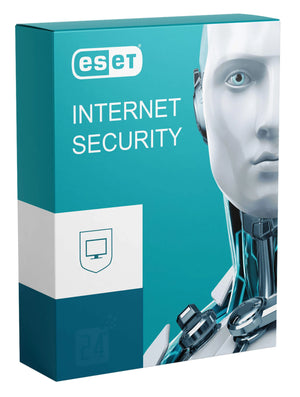In a world where data protection is vital, encryption is the armor that keeps your personal and professional information safe from cyber threats. This article explores the importance of ensuring the security of your data, highlighting encryption as an effective solution.
Encryption is an encoding method that transforms data into a form that is unreadable to anyone who does not have the decryption key. In this article, you will learn the basic principles behind encryption and how it keeps your data safe.
Furthermore, you will learn about the best encryption software available on the market, which provide essential tools to protect your files, emails, messages and sensitive information. You will also see practical examples of how encryption is applied to safeguard critical and confidential information.
- Importance of Encryption: Protecting Your Data 🛡️🔒
- What is Cryptography and How Does It Work? 🔐🔍
- Encryption Software: Protect Your Files and Communications 💻📧
- Usage Examples: Protecting Passwords and Financial Data 🔑💳
- Software Recommendations: Online Trust and Security 💼🛡️
- Conclusion: Your Data, Your Security 🔒💻
Importance of Encryption: Protecting Your Data
Protecting your data against intrusion, leaks or loss is a growing concern. Every day, millions of data are exposed or stolen by hackers, criminals or spies. This data can be used for malicious purposes, such as fraud, blackmail or cyber attacks.
Encryption is the safeguard that prevents unauthorized access, preserving the integrity and confidentiality of your personal and professional information. With encryption, you can store and transmit your data securely without fear of it being intercepted or compromised.
Encryption is also essential to ensure compliance with data protection laws and standards, such as the GDPR (General Data Protection Regulation) in Europe or the LGPD (General Personal Data Protection Law) in Brazil. These laws require companies and organizations to adopt appropriate security measures to protect the data of their customers and users.
What is Cryptography and How Does It Work?
Encryption is an encoding method that transforms data into a form that is unreadable to anyone who does not have the decryption key. The key is a secret code that allows you to convert the encoded data into its original form.
There are two main types of encryption: symmetric and asymmetric. In symmetric encryption, the same key is used to encode and decode data. In asymmetric cryptography, also called public key cryptography, two different keys are used: a public one, which can be shared with anyone, and a private one, which must be kept secret.
The advantage of symmetric encryption is that it is faster and simpler than asymmetric encryption. The disadvantage is that it requires a secure channel to exchange keys between the parties involved. The advantage of asymmetric encryption is that it does not require a secure channel to exchange keys, as only the public key needs to be shared. The disadvantage is that it is slower and more complex than symmetric.
Encryption Software: Protect Your Files and Communications
Encryption software provides essential tools to protect your files, emails, messages and sensitive information. This software uses encryption algorithms to encode and decode your data, making it inaccessible to anyone who does not have the correct key.
With encryption software, you can protect your files on your computer, cell phone, tablet or in the cloud. You can also protect your online communications, such as emails, instant messages, voice or video calls. This way, you ensure that only authorized people can access your data.
Encryption software also offers additional features such as key management, authentication, digital signature, integrity checking, compression, and backup. These features increase the level of security and reliability of your data.
Usage Examples: Protecting Passwords and Financial Data
Encryption is key to keeping your passwords and financial data safe. This information is a frequent target of cyber attacks, which can result in financial losses or identity theft. See some examples of how encryption is applied to safeguard critical and confidential information.
One example is the use of password managers, which are software that store and generate strong and unique passwords for each website or service you use. These software use encryption to protect your passwords from being hacked or forgotten. You only need to remember one master password to access all the others.
Another example is the use of digital wallets, which are applications that allow you to store and transfer money or cryptocurrencies in a secure and convenient way. These apps use encryption to protect your financial data from fraud or theft. You can use your fingerprint, facial recognition or PIN code to authorize transactions.
Software Recommendations: Online Trust and Security
There are several encryption software options on the market. Here we will provide a reliable selection of recommended software for protecting personal and professional data. These software are compatible with the main operating systems and devices, and offer a great cost-benefit ratio.
- VeraCrypt : It is free and open-source software that allows you to create encrypted volumes on your hard drive or external devices. You can use this software to protect your files from loss, theft or unauthorized access. VeraCrypt uses advanced symmetric and asymmetric encryption algorithms such as AES, Twofish and Serpent.
- ProtonMail : It is a secure and private email service that uses end-to-end encryption to protect your messages. You can use this service to send and receive emails without them being read or intercepted by third parties. ProtonMail uses modern asymmetric encryption algorithms such as RSA and ECC.
- Signal : It is a free and open source application that allows you to send instant messages, make voice or video calls, share files and join groups with complete security and privacy. You can use this app to communicate with your contacts without them being monitored or tracked by anyone. Signal uses the Signal protocol, which is an advanced end-to-end encryption system based on elliptic curves.
- Bitwarden : It's a free, open-source password manager that lets you store and generate strong, unique passwords for every website or service you use. You can use this software to manage your passwords safely and conveniently. You can sync your passwords across your devices and access them with a master password or your fingerprint. Bitwarden uses robust symmetric encryption algorithms such as AES-256 and PBKDF2.
- NordVPN : It is a VPN (Virtual Private Network) service that allows you to browse the internet anonymously and securely. You can use this service to access blocked or censored websites, secure your connection to public networks, or hide your location and online activities. NordVPN uses sophisticated asymmetric encryption algorithms such as IKEv2/IPsec and OpenVPN.
- ESET Internet Security 2023 : It is an advanced security software that protects your devices from all types of online threats such as malware, ransomware, and phishing. You can use this software to browse the internet anonymously and safely, protect your purchases and banking transactions, manage your passwords and control your children's access. ESET Internet Security 2023 uses advanced category multilevel encryption algorithms such as AES, RSA and ECC.
Conclusion: Your Data, Your Security
Protecting your data is an absolute priority. Investing in encryption software means investing in the security of your personal and professional data. Adopt security measures and keep your data protected.
Discover the best encryption software available on the Up Software Store and protect your data against cyber threats. Ensure your digital security today!






